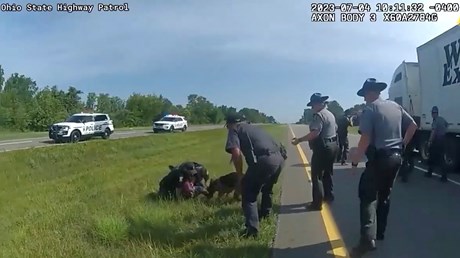Communal suffering has to be reckoned with. And so does God's healing word.

A few weeks ago, I arrived at the airport a little early to pick up a friend and decided to pull over in the emergency lane to wait. I knew it wasn’t the right thing to do, but there were 20 cars already there, so I figured my decision wasn’t too bad.
Moments later, however, I heard a siren and saw police car lights in my rearview mirror.
Without warning, my hands began to tremble, my breathing quickened, and my legs started to shake. I called my husband and told him what was happening. My body was going into full-fledged panic mode.
As the officer approached, I could barely catch my breath. Images of Black men and women shot for minor offenses raced through my mind. Would I be labeled as a criminal who broke the law, or as a mother, wife, and minister who served the Lord? Would I be lumped into the countless names of Black people who have died for misdemeanors, or would I be among the privileged few who escaped alive?
By the time the officer came near to my car, I could barely see. He stood at a short distance, asked me to breathe, and helped me to calm down. With my husband still on speaker phone, I finally found the words to say, “I’m sorry.”
What followed in my mind was, “Please don’t hurt me.” In that moment of panic, I could not distinguish the kind officer in front of me from everything I had seen on the news.
My traffic citation gave the other offending cars an opportunity to drive off and, when he finally left, I began to cry. I cried for all of the Black men and women who begged for their lives and still died. I cried for Manuel Ellis, Philando Castile, George Floyd, Breonna Taylor, Alton Sterling, and so many more.
The list grows by the day. During ...
from Christianity Today Magazine
Umn ministry


.gif)

.gif)
.gif)
